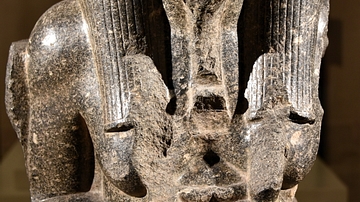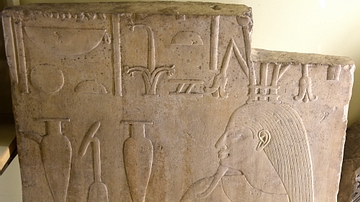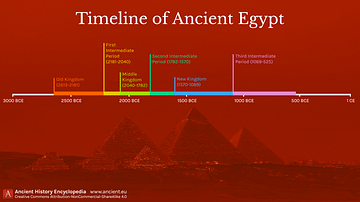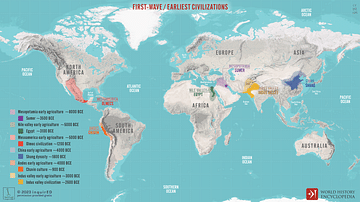Illustration
The fleshy body symbolizes the Nile's fertility. Hapy holds a table of offerings, from which hang geese, quails, lotuses, pomegranates, and grapes. He presents his produce to Amun-Ra, in whose principal temple this statue stood. A relief behind Hapy's left leg shows who dedicated this statue; Sheshonq, high-priest of Amun-Ra in Thebes. He was designated heir to the throne of his father, Osorkon I. They briefly ruled together, but Sheshonq died 1st and he was buried in Tanis, then Egypt's capital. 22nd Dynasty, reign of Osorkon I, circa 924-889 BCE. From Thebes, Karnak, temple of Amun-Ra, Egypt. (The British Museum, London).
Cite This Work
APA Style
Amin, O. S. M. (2016, July 24). Statue of the Nile God Hapy. World History Encyclopedia. Retrieved from https://www.worldhistory.org/image/5349/statue-of-the-nile-god-hapy/
Chicago Style
Amin, Osama Shukir Muhammed. "Statue of the Nile God Hapy." World History Encyclopedia. Last modified July 24, 2016. https://www.worldhistory.org/image/5349/statue-of-the-nile-god-hapy/.
MLA Style
Amin, Osama Shukir Muhammed. "Statue of the Nile God Hapy." World History Encyclopedia. World History Encyclopedia, 24 Jul 2016. Web. 19 Apr 2024.





